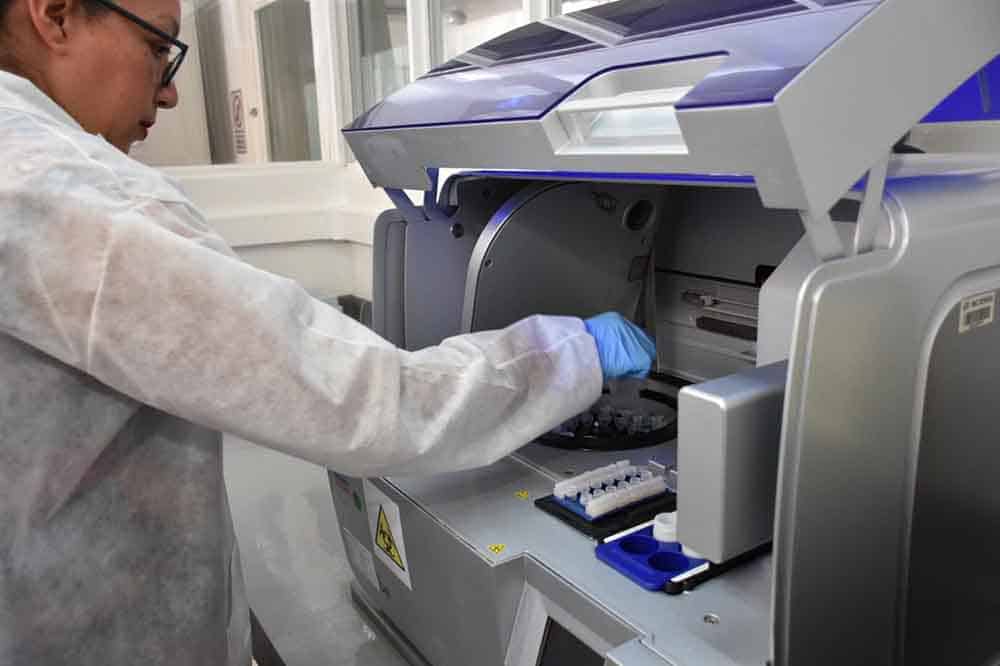The president of El Salvador, Nayib Bukele, on Tuesday said Costa Rica is promoting a false impression that it has flattened the coronavirus curve.
Speaking on national television, Bukele accused Costa Rica of intentionally testing fewer people in order to announce a lower total of positive cases.
“Costa Rica would give us the false impression that they have flattened the curve but really they have only lowered the amount of evidence,” Bukele said.
“Costa Rica began by doing an excellent number of tests. They say that the capacity of Costa Rica is 2,500 [tests per day]; however, lately they are doing 130 to 160 tests and I say, why don’t they do 1,500? They will have their reasons.”
El Salvador has processed 33,628 diagnostic tests for COVID-19, according to Bukele, including nearly 1,600 on Tuesday. The total corresponds to about 5,185 tests per 1 million people.
Costa Rica has processed a total of 14,121 diagnostic tests for COVID-19, which corresponds to 2,763 tests per 1 million people. Since the Health Ministry began detailing daily test totals in mid-April, Costa Rica has averaged 240 daily tests.
How Costa Rica conducts coronavirus tests
While Costa Rican authorities have not responded directly to Bukele’s comments*, previous statements suggest the country tests fewer people because it has fewer suspected coronavirus cases.
According to the Health Ministry, Costa Rica tests everyone who meets their definition as a suspected case, which they define as follows:
- A person with an acute respiratory infection (fever and at least one sign or symptom of respiratory illness (e.g. cough, shortness of breath, sore throat, nasal congestion)) and who meets at least one of the following criteria:
- The person does not have another etiology that fully explains the clinical presentation of the event.
- The person has a history of travel outside the country in the 14 days prior to the onset of symptoms.
- The person’s symptoms began in the 14 days after having been in close contact with someone who recently traveled out of the country.
- A person older than 15 years with a severe acute respiratory infection. Or someone under 15 years of age, with a severe acute respiratory infection and no etiology that fully explains the clinical presentation of the event.
- A person with anosmia (loss of sense of smell) or dysgeusia (change in perception of taste), without another etiology that explains the clinical presentation.
- A person with acute respiratory disease of any degree of severity, who within 14 days prior to the onset of the disease had close physical contact with a confirmed, probable, or suspected case of COVID-19.
While Costa Rica does not conduct mass testing, it processes 200 sentinel tests each week to track potential community transmission. Sentinel surveillance — an alternative when it’s not possible to test everyone — involves surveying a percentage of a group with the expectation that they are representative of a given population.
The Health Ministry says that through testing and contact tracing, it has identified the epidemiological origins of virtually all of Costa Rica’s positive cases — which it says indicates there’s no mass community transmission of the coronavirus within Costa Rica.
* * * *
* Update: At noon Wednesday, the Costa Rican Foreign Ministry issued the following statement:
Costa Rica expresses its concern at the statements of the President of the Republic of El Salvador of May 5, 2020, in which he made reference to the practices and standards that the country uses for the application of tests for the detection of COVID-19.
The Minister of Health of Costa Rica, Dr. Daniel Salas Peraza, has repeatedly explained and explained the methodology used by our country, which is recognized by the international community and the specialized agencies of the United Nations, such as the World Health Organization (WHO) and the Pan American Health Organization (PAHO).
Costa Rica will unwaveringly maintain its historical vocation to promote two main pillars: democratic institutions and absolute respect for human rights. These two pillars solidly support what the country has built over decades, and which today allows Costa Rica to appreciate and enjoy, among other great achievements, a first-rate health system.
The COVID-19 pandemic does not distinguish borders, nationalities, or social or economic conditions. For this reason, Costa Rica will continue to face the current health threat, enhancing scientific and technical knowledge, building on the universal principles and values that characterize it, and decisively contributing to international solidarity.
We make our best practices in public health available to all peoples so that, together, we can join efforts and propose solutions.






